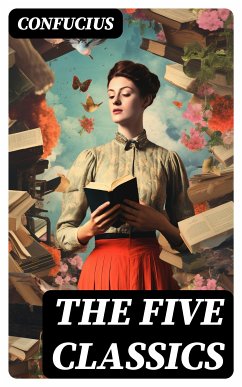The Five Classics, written by the renowned Chinese philosopher Confucius, is a compilation of five ancient texts that have had a profound influence on East Asian history and culture. These texts encompass a wide range of subjects including poetry, history, rituals, music, and governance, providing insights into the moral and ethical principles that were central to Confucian thought. The language used in The Five Classics is poetic and philosophical, reflecting the author's emphasis on self-cultivation, social harmony, and ethical behavior. This literary work serves as a foundational text for Confucianism, guiding individuals on the path to moral development and societal harmony. Confucius' profound wisdom and teachings have continued to resonate throughout the centuries, making The Five Classics a timeless masterpiece that offers timeless lessons on virtue and righteousness. Readers interested in delving into the philosophical and ethical teachings of Confucius will find The Five Classics to be an invaluable resource that provides deep insights into the importance of personal morality and social responsibility.
Dieser Download kann aus rechtlichen Gründen nur mit Rechnungsadresse in A, B, BG, CY, CZ, D, DK, EW, E, FIN, F, GR, H, IRL, I, LT, L, LR, M, NL, PL, P, R, S, SLO, SK ausgeliefert werden.









